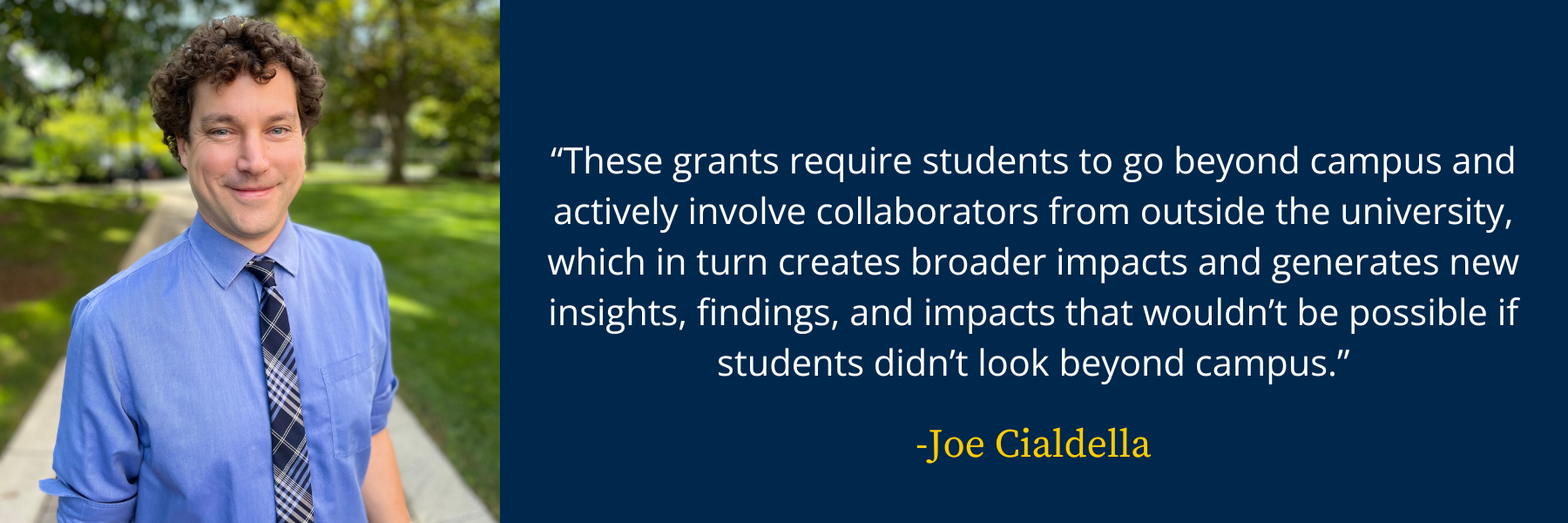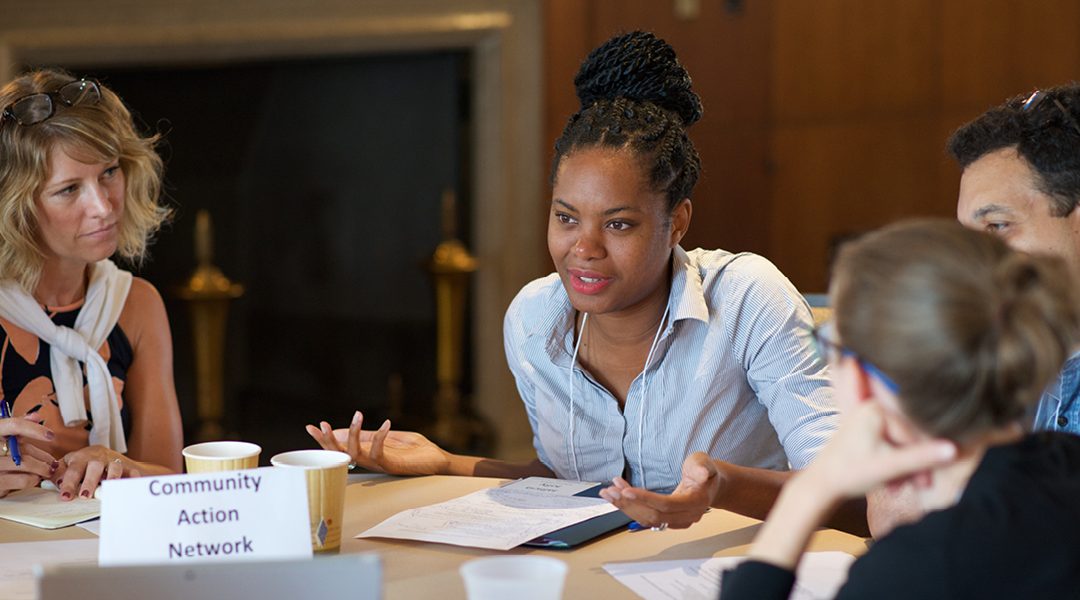Rackham Public Scholarship Grants provide up to $10,000 in funding for publicly engaged scholarly projects co-created by Rackham students and community partners. Examples of public scholarship include, but are not limited to, exhibits, policy research with a direct impact, podcasts and public programs, K-12 partnerships, and community-engaged research with clear benefits to partners and students.
In this Q&A, Joe Cialdella, assistant director of Rackham’s Professional Development and Engagement team and program lead for public scholarship, shares his thoughts on the program’s greatest impacts and tips for what makes a successful partnership and application.
Tell me about a Rackham Public Scholarship Grant project that you felt was especially impactful. What aspects of it do you think illustrate excellence in partnership and/or public engagement?
Joe Cialdella: It’s hard to pick just one! A few years back, Jana Wilbricht (now an alum) had an especially impactful project working with tribal radio stations in rural areas around how they communicate public health matters to the communities they serve. Dr. Wilbricht was very intentional and thoughtful about the way she connected with tribal partners. From the beginning, she worked with them to create a truly collaborative, mutually beneficial project. She was flexible and adaptable in her plans and had an openness to her work and questions being changed by the experience. She made sure partners had an authentic voice in shaping the research questions, project outcomes, and process. While she made sure the project left tribal partners with information they needed and wanted to inform their practice at the stations, she also made sure that her partners understood what she needed from the work. This kind of relationship building takes time. Dr. Wilbricht, then a student, went through tribal review boards for her project approval, attended meetings, and talked with station managers to understand their needs and how her work could contribute to what they were already doing. She continued to be involved in working with them long after her project wrapped up because everyone involved benefited and wanted to continue to work together.
Taking a broad view, how does the Rackham Public Scholarship Grant influence higher education and scholarly work?
Joe Cialdella: Public Scholarship Grants are one way we can work toward the university and Rackham’s mission to serve the public good through research and scholarship. The challenges confronting society—from climate change to racial justice and anti-racism—require diverse skill sets and forms of expertise and knowledge. These grants require students to go beyond campus and actively involve collaborators from outside the university, which in turn creates broader impacts and generates new insights, findings, and impacts that wouldn’t be possible if students didn’t look beyond campus. We see students and their partners bringing new and exciting projects forward that necessitate new methods and ways of being scholars in service to society, which in turn helps demonstrate the relevance of higher education and graduate scholarly work to the wider public and communities students are serving through their work.
What are some of the hallmarks of a successful Public Scholarship Grant application?
Joe Cialdella: Successful Public Scholarship Grants always have evidence of a strong, mutually beneficial partnership as their focus, meaning they clearly demonstrate the benefits of the project not only to themselves, but also to the partner organizations they are working with. Compared to other fellowship or grant applications graduate students might be submitting to Rackham or elsewhere, we want to see evidence of a thoughtful collaborative process, not only information about the content of your project. It’s also good to remove or clearly define any necessary disciplinary jargon. Public Scholarship Grants are reviewed by a panel with diverse expertise, and reviewers will likely not have in-depth expertise in your specific area of study. We’re looking for a description of the project and collaboration, not only information about your research area and field of study (though that’s important too!). As always, a careful budget that reflects the values of the project is important. A question that I often hear reviewers asking is, “How will the funds be used to advance collaboration and support a project that could not otherwise be funded with a traditional research grant?”

What is one aspect of community partnerships that you wish more people took into deep consideration?
Joe Cialdella: Reciprocity is a principle of community partnerships that can be challenging to navigate. It takes time to build a relationship where all collaborators feel comfortable sharing what they need from a project in order for it to be mutually beneficial, and move beyond something transactional to an experience that’s transformative for all those involved. I think it’s an ideal we’re always striving toward and working toward in community engaged scholarship, and a difficult destination to actually arrive at, especially in a sustainable way.
What is your vision for the future of Rackham’s Public Scholarship Grant?
Joe Cialdella: Students are always bringing new ideas, energy, and ways of working to their fields. We want to try to be responsive and expansive in our conception of public scholarship to accommodate what students want to learn and do with their education and work. My hope and vision is that Rackham’s Public Scholarship Grants can be formative experiences in the career arcs of our students, giving them the confidence and capacity to be public and community engaged scholars in their future work, wherever their careers might take them.

